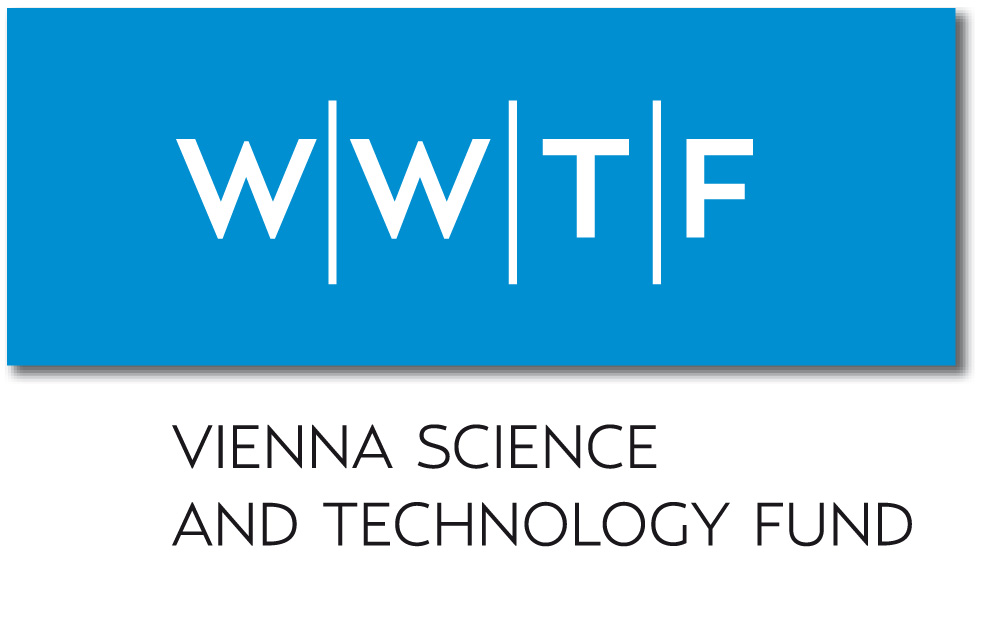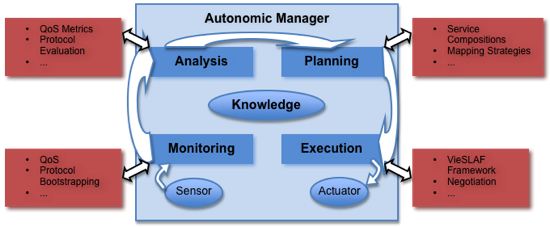
Foundations of Self-Governing ICT Infrastructures

| home | publications | activities | in media | people | links |
News:
- June 2012: Michael Maurer and Vincent Emeakaroha defended successfully their PhD theses on "Governance of Cloud Computing Infrastructures using Knowledge Management" and on "Managing Cloud Service Provisioning and SLA Enforcement via Holistic Monitoring Techniques" - Congratulations!
Facts
Project Runtime: March 2009 - March 2012
Volume Funded: 300.000 Euro
Funding Agency: Vienna Science and Technology Fund (WWTF)
Project Description
While it is possible today to offer the packaging of software into services no practical approaches are so far available for packaging computing power as a service. Yet this could be a low-cost and massively scalable solution for problems which presently require the purchase of expensive computers. The project investigates the problems arising from the lack of dynamism and adaptivity in so-called service-oriented architectures (SOA). Emulating the principles of autonomic systems (such as operate in biological systems), it develops novel methods for communications between ICT systems and for their self-management. Applications include the easier combination of IT systems operated by two or more companies in the case of a merger.
Details
Autonomic systems use high-level guidance from humans and decide which steps need to be done to keep the system stable. The figure below depicts an autonomic system. Such systems constantly adapt themselves to changing environmental conditions. Similar to biological systems (e.g. human body) autonomic systems maintain their state and adjust operations considering the changing components, workload, external conditions, hardware and software failures. Usually, autonomic systems comprise one or more managed elements, e.g. QoS elements. An autononmic manager manages the element's state and behavior.

The management is done through the following steps:
- Monitoring: The QoS managed element is monitored using adequate software sensors.
- Analysis: The monitored and measured metrics (e.g. execution time, reliability, availability, etc.) are analyzed using base knowledge (condition definition, condition evaluation, etc.).
- Planing: Based on the evaluated rules and the results of the analysis, the planning component delivers necessary changes on the current setup, e.g. renegotiation of services which do not satisfy the established QoS guarantees.
- Execution: Finally, the planned changes are executed using software actuators and other tools.
Self-governing principles augment the autonomic systems. In autonomic systems the rules and policies are defined by humans whereas self-governing systems may produce, improve, and evolve the rules without intervention from outside. Due to environmental changes (e.g., frequent service failures) the rules for QoS re-negotiation should evolve (e.g., new negotiation strategy should be used). This should happen without human interaction and should be based on predefined guidelines.